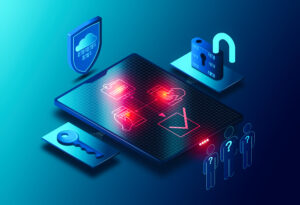Multi-Factor Authentication (MFA) has emerged as a pivotal defense mechanism. MFA, at its core, involves verifying a user’s identity using multiple pieces of evidence before granting access to a system or application. This process typically combines something the user knows (like a password), something the user has (such as a mobile device), and something the user is (like a fingerprint).

Why MFA is Critical for Businesses
- Enhanced Security: MFA significantly lowers the risk of cyber attacks, especially those that exploit weak or stolen credentials.
- Data Protection: With MFA, businesses can better safeguard sensitive information, including customer data, intellectual property, and financial records.
- Compliance and Trust: Implementing MFA helps businesses comply with industry regulations and builds trust with customers who are increasingly concerned about data security.
- Reduced Fraud Risks: MFA is effective in reducing the risk of fraud, particularly in transactions and data access.
- Adaptability: MFA can be tailored to various levels of security needs, depending on the type of data or system being protected.

As cyber threats continue to evolve, MFA stands as a robust barrier against unauthorized access, ensuring that only verified users can access critical systems and data. It is no longer just an option but a necessity for businesses aiming to protect their digital assets.
As businesses strive to fortify their cyber defenses, adopting MFA is a smart move. Companies like Devfuzion offer MFA solutions tailored to modern business needs, providing an extra layer of security in an increasingly interconnected world. With MFA, businesses can navigate the digital landscape with greater confidence and security.

